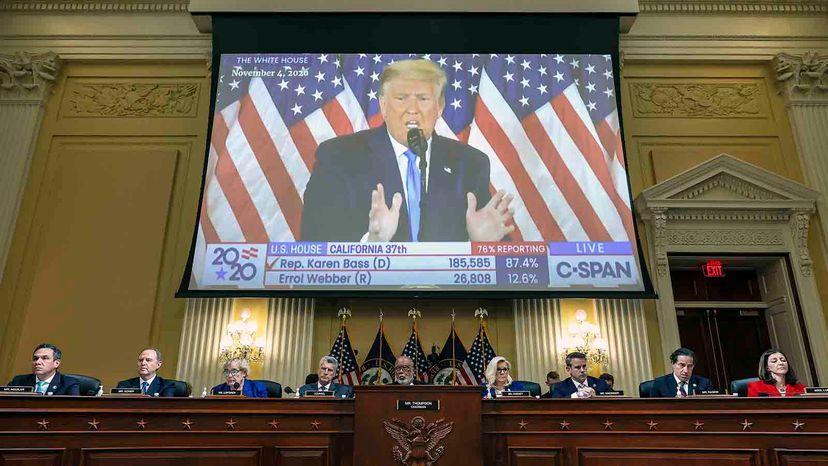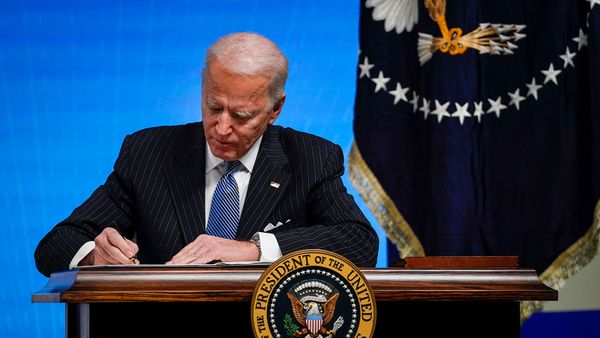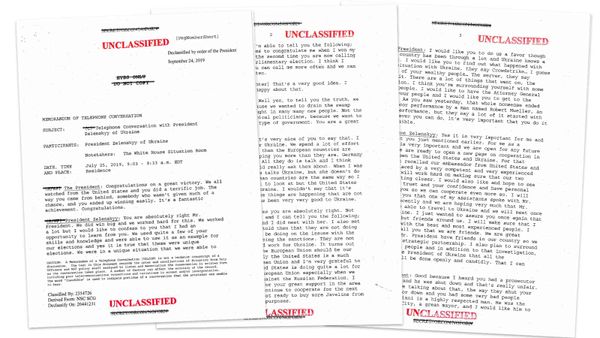The courts and Congress, have ways of enforcing subpoenas. They're not always effective. They often take time. But they have their ways. If you ignore or defy a subpoena, the court that demanded your presence can find you in contempt. A fine or jail time is possible.
In the case of defying a Congressional subpoena, the committee that issued to subpoena votes to issue a contempt citation, and then the full chamber votes on it. If it passes, Congress has three ways to prosecute contempt charges, according to the Congressional Research Service (CRS):
- "[A] single house of Congress [may] certify a contempt citation to the executive branch for the criminal prosecution of an individual who has willfully refused to comply with a committee subpoena. Once the contempt citation is received, any prosecution lies within the control of the executive branch." That means that the Justice Department (a part of the executive branch) can decide whether to bring a criminal prosecution. Often, citing executive privilege or other protections, Justice simply declines to prosecute.
- "Congress may try to enforce a subpoena by seeking a civil judgment declaring that the recipient is legally obligated to comply. This process of civil enforcement relies on the help of the courts to enforce congressional demands." Congress, in this case, would file a civil suit against the subpoena-stiffer. "The civil lawsuit route has its own problems. It moves really slowly," Madonna said. "The civil lawsuit is used sort of as a leverage. They're negotiating with the executive branch and usually get whatever it is they're looking for through that."
- The third type of enforcement is "inherent contempt power," a rarely used and mostly outdated method. A chamber of Congress can actually have the subpoenaed would-be witness jailed for refusing to cooperate. "The inherent contempt power is a constitutionally based authority given to each house to unilaterally arrest and detain an individual found to be 'obstruct the performance of the duties of the legislature.'" It was last used in 1935.
If Trump defies Congress' subpoena, the committee likely wouldn't have time to pursue a civil judgment. "We well recognize the fact that because of the Committee only being able to exist to the end of this congressional year, because that was the mandate, we're at a bit of a time limit here," Rep. Adam Kinzinger told George Stephanopoulos on "This Week with George Stephanopoulos Oct. 16, 2022.
The more likely option would be to refer the case to the Department of Justice for criminal contempt of Congress charges as it did with Bannon, Meadows, Navarro and Dan Scavino.
But even then, Trump likely won't face tough consequences. If you defy a Congressional subpoena and are found guilty of contempt, it's a misdemeanor, "punishable by a fine of not more than $1,000 nor less than $100 and imprisonment in a common jail for not less than one month nor more than twelve months."
The penalties for ignoring non-Congressional subpoenas vary with jurisdiction, and are at the discretion of the presiding judge.
Whether it's bucking Congress or your local magistrate, ignoring a subpoena clearly is a gamble. If the paperwork and hours in court don't get you, the fine and/or jail time might. And in the end, it's hard to predict what will happen. If there is an end.
"One of the lines I always like to tell my students is, 'Rules matter until they don't,'" Madonna said. "At the end of the day, rules matter until somebody decides we're going to stop enforcing them or we're going to enforce them a different way. That's scarily or sadly always the case."



